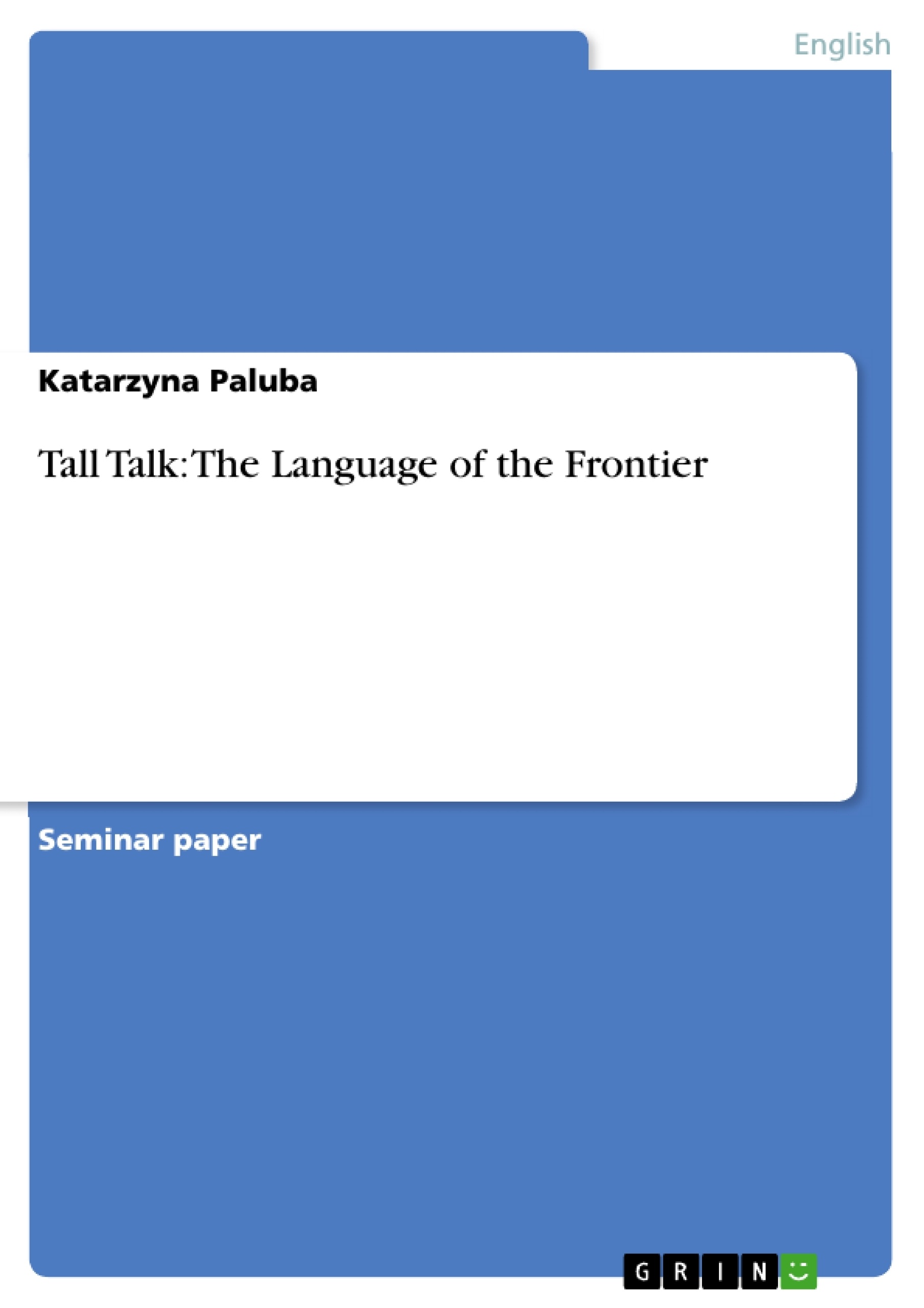According to the Oxford Advanced Learner's Dictionary of Current English a frontier is a "part of a country bordering on another country". In the American English this word has one more meaning: in the past a frontier was the "farthest part of a country to which settlement has spread, beyond which there is wild or unsettled land" (352). So the language of the frontier is first of all the language of people who settled at the western frontier of United States. The settlers were plain people, backwoodsmen, most of them were illiterate and spoke a simple, substandard English, often even dialects that originated from their old fatherland (Sorbonne). That all influenced of course the language as the whole.
The language of the frontiersmen is well documented and can be an object of scientific studies thanks to tall tales, which were oral stories, before they were written down. So The Tall Tales of Davy Crockett can be a very rich source of examples of words and grammar rules used by people those days. It is also interesting to examine the characteristics of texts written in the beginnings of the 19th century.
Inhaltsverzeichnis (Table of Contents)
- Introduction
- About the tall tales
- Exaggerations in metaphors and similes
- Syntax
- Grammar
- Words
- Spelling
Zielsetzung und Themenschwerpunkte (Objectives and Key Themes)
This paper examines the unique language of the American frontier, specifically focusing on the tall tales of Davy Crockett. The author analyzes the text "Col. Crockett's Adventure with a Grizzly Bear" to showcase the linguistic characteristics of frontier storytelling.
- The history and development of tall tales in America
- The use of exaggeration, metaphor, and simile as literary tools
- Linguistic features of the text, including syntax, grammar, vocabulary, and spelling
- The influence of oral storytelling traditions on written tall tales
- The role of humor and dialect in frontier literature
Zusammenfassung der Kapitel (Chapter Summaries)
- Introduction: This chapter defines the term "frontier" and discusses its significance in the context of American English. It introduces the concept of tall tales as a valuable source of information about the language of frontiersmen.
- About the tall tales: This chapter provides an overview of the history and characteristics of tall tales. It discusses their origins, popularity, and key themes, focusing on the stories of Davy Crockett and their depiction of frontier life.
- Exaggerations in metaphors and similes: This chapter examines the use of exaggerated language in tall tales, highlighting the role of metaphors and similes in creating vivid and humorous descriptions. It analyzes the specific example of "Col. Crockett's Adventure with a Grizzly Bear" to illustrate these techniques.
Schlüsselwörter (Keywords)
This study focuses on the language of the American frontier, particularly the use of tall tales as a source of linguistic analysis. Key concepts include tall tales, Davy Crockett, American folk heroes, frontier humor, exaggeration, metaphor, simile, syntax, grammar, vocabulary, spelling, and dialect.
- Citar trabajo
- Katarzyna Paluba (Autor), 2006, Tall Talk: The Language of the Frontier, Múnich, GRIN Verlag, https://www.grin.com/document/82206



